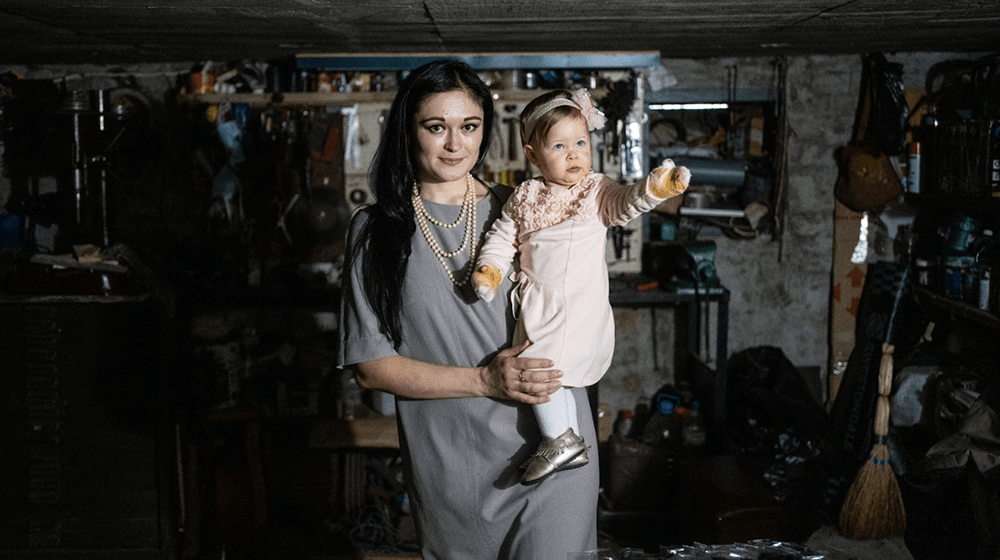Since the beginning of the full-scale Russian invasion of Ukraine, 1 in 3 babies have been delivered in a UNFPA-supported hospital.
Despite the dangers – there have been more than 850 verified attacks on health care facilities – obstetrician Olena Mokhonko has helped women deliver as many as 70 babies a month at Chernihiv Maternity Hospital.
She joined four of those women to celebrate their children’s first birthdays and to hear the mothers share their experiences of giving birth in a city under fire. Here, they tell their stories.
Nina and Yulia
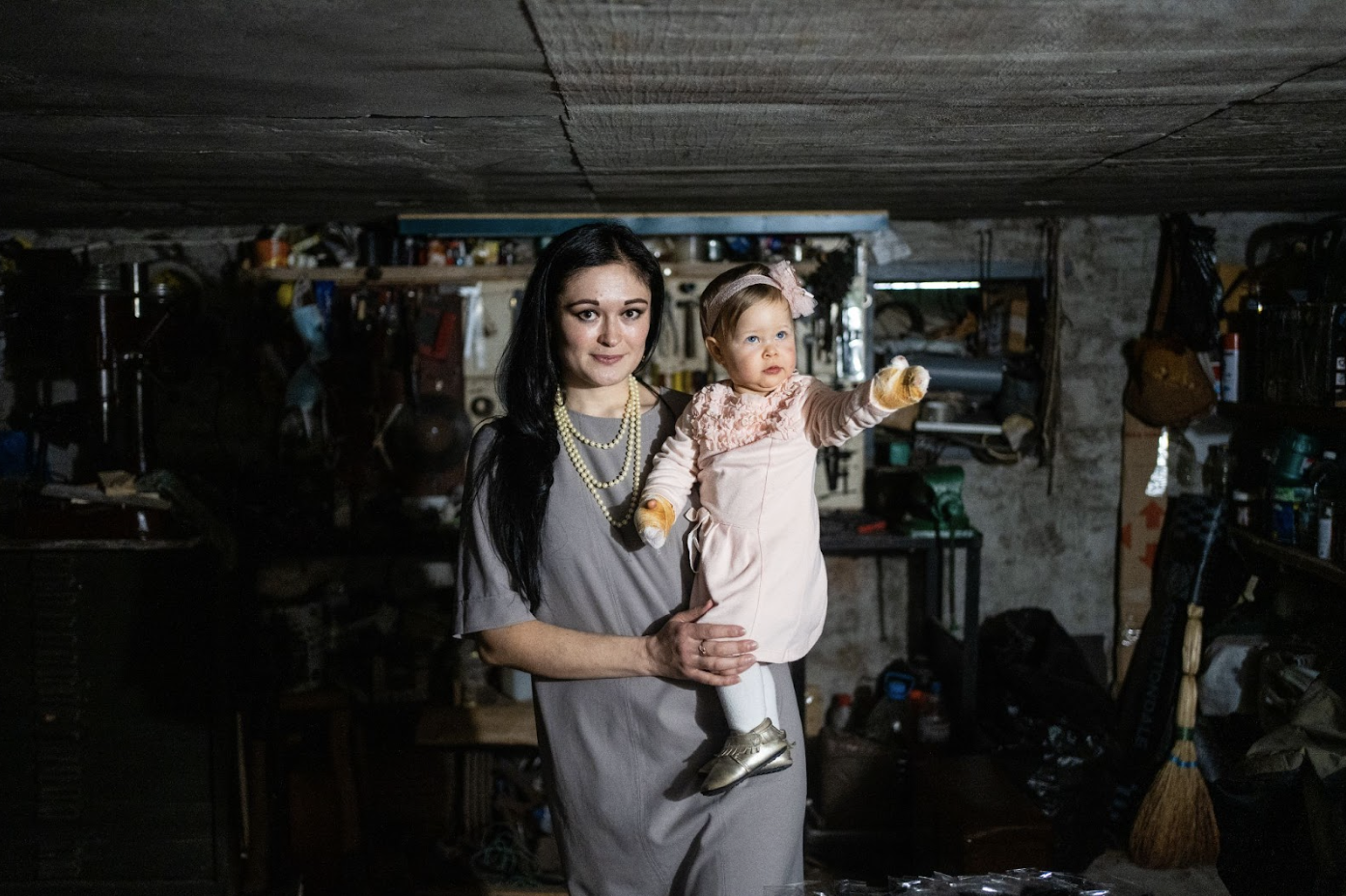
In the last few weeks of her pregnancy, Nina’s birthing plan changed drastically as the conflict grew. Knowing that she might not be able to get to the hospital, she created a Plan B.
“I was preparing to give birth in the basement,” she says, recalling how her community rallied around her. “People from our neighbourhood had different stocks of food; some had cereals, some canned food...everyone had some food or hygiene supplies, so we had the basics. I found a perinatal psychologist on the Internet – there was still a connection at this time – and asked her what to do in my situation. She explained everything to me in detail: how to cut the umbilical cord, how to check the placenta.”
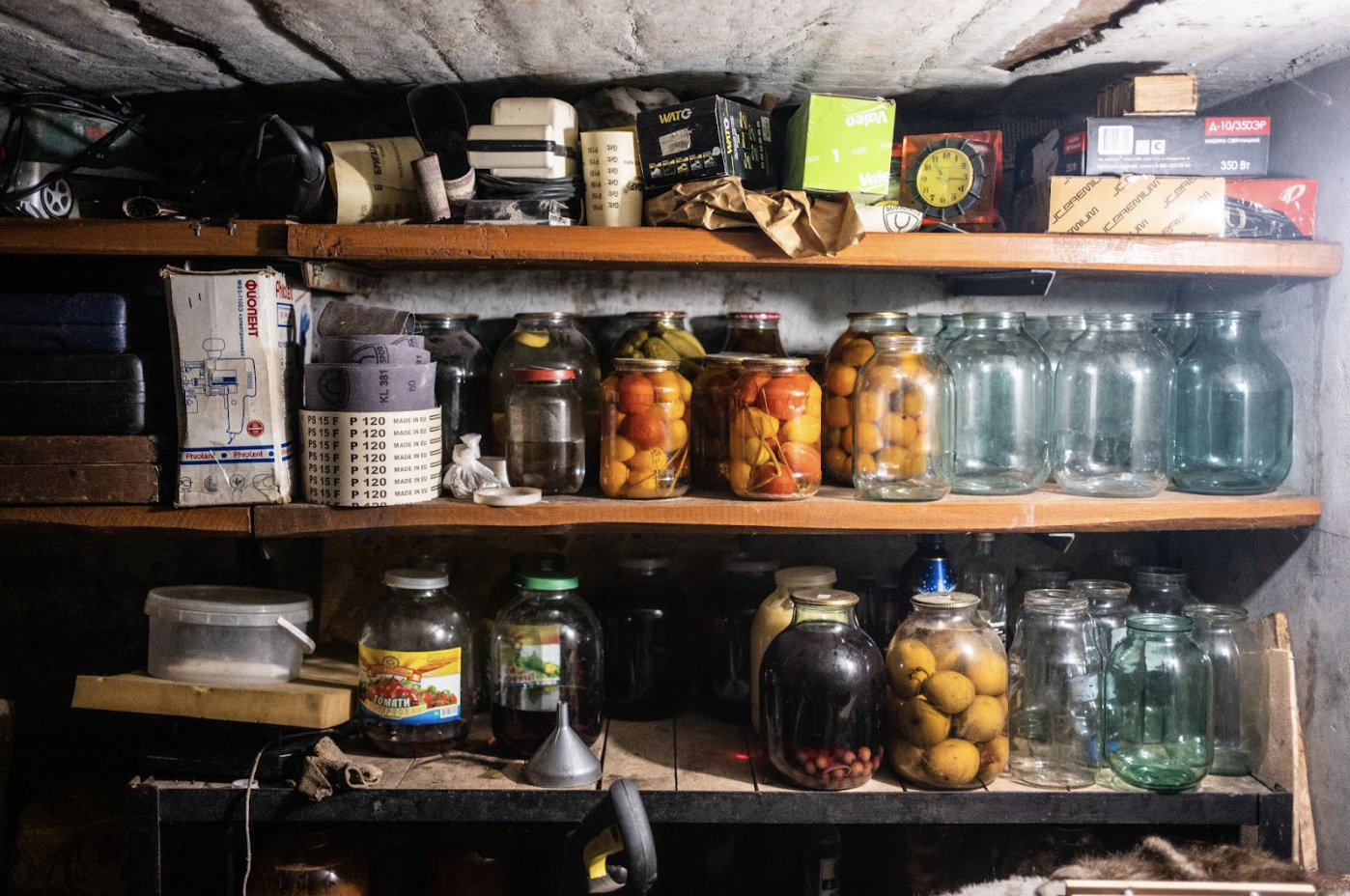
When the time came, Nina called an ambulance but was told the staff could respond only to gunshot wounds. A volunteer took her to the maternity hospital, so she didn’t need to go through with the basement birth, but extreme challenges remained.
Nina recalls the system in place at the hospital: “If there were no missile attacks, we were taken to the first floor and gave birth in the corridor – far from the windows. But when the security situation was critical, we were lowered into the bomb shelter. It was pure horror: Babies were crying; women were giving birth. I gave birth in the corridor. Other women were lying next to me or giving birth.”
Despite the chaos, she says, “The medical staff worked very harmoniously. The director of the maternity hospital personally walked around the first floor, checked how we were feeling, and worried about everyone.”
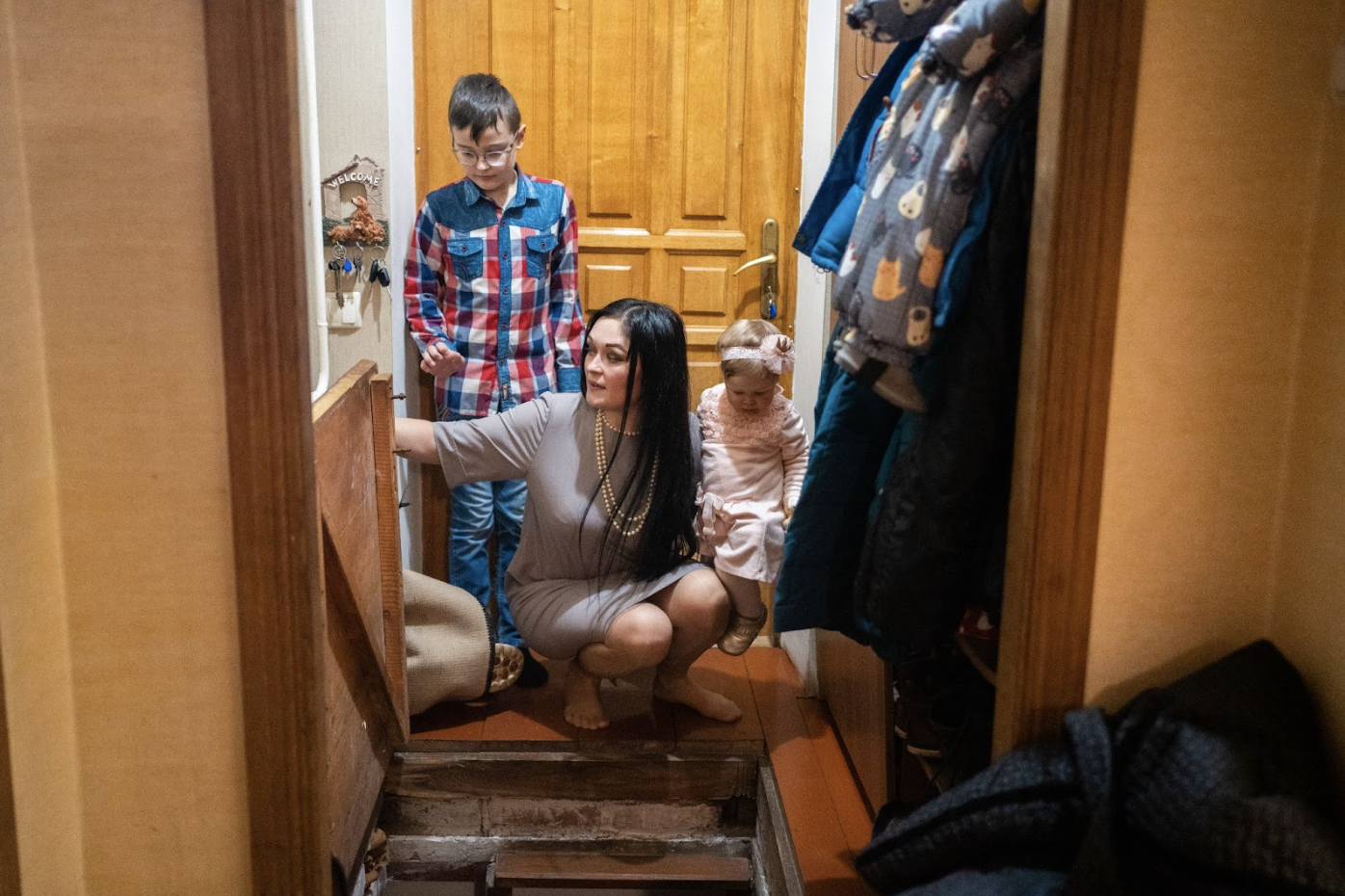
Nina received quick and efficient postpartum care and was discharged with baby Yulia. Heavy bombardment continued as she arrived home. “We were in the basement all the time. When it quietened down a bit, we only went upstairs to use the toilet or to quickly prepare food.”
“At night, the hum of the planes made it impossible to sleep and the baby would wake up, asking to be fed.”
On 18 March, when Yulia was 11 days old, Nina took her children and left on an evacuation bus. “The city was in smoke, without lighting,” Nina recalls. “Data was taken from each of the passengers, and it was recorded who was sitting where, so that in the case of a shooting, the bodies could be identified.”
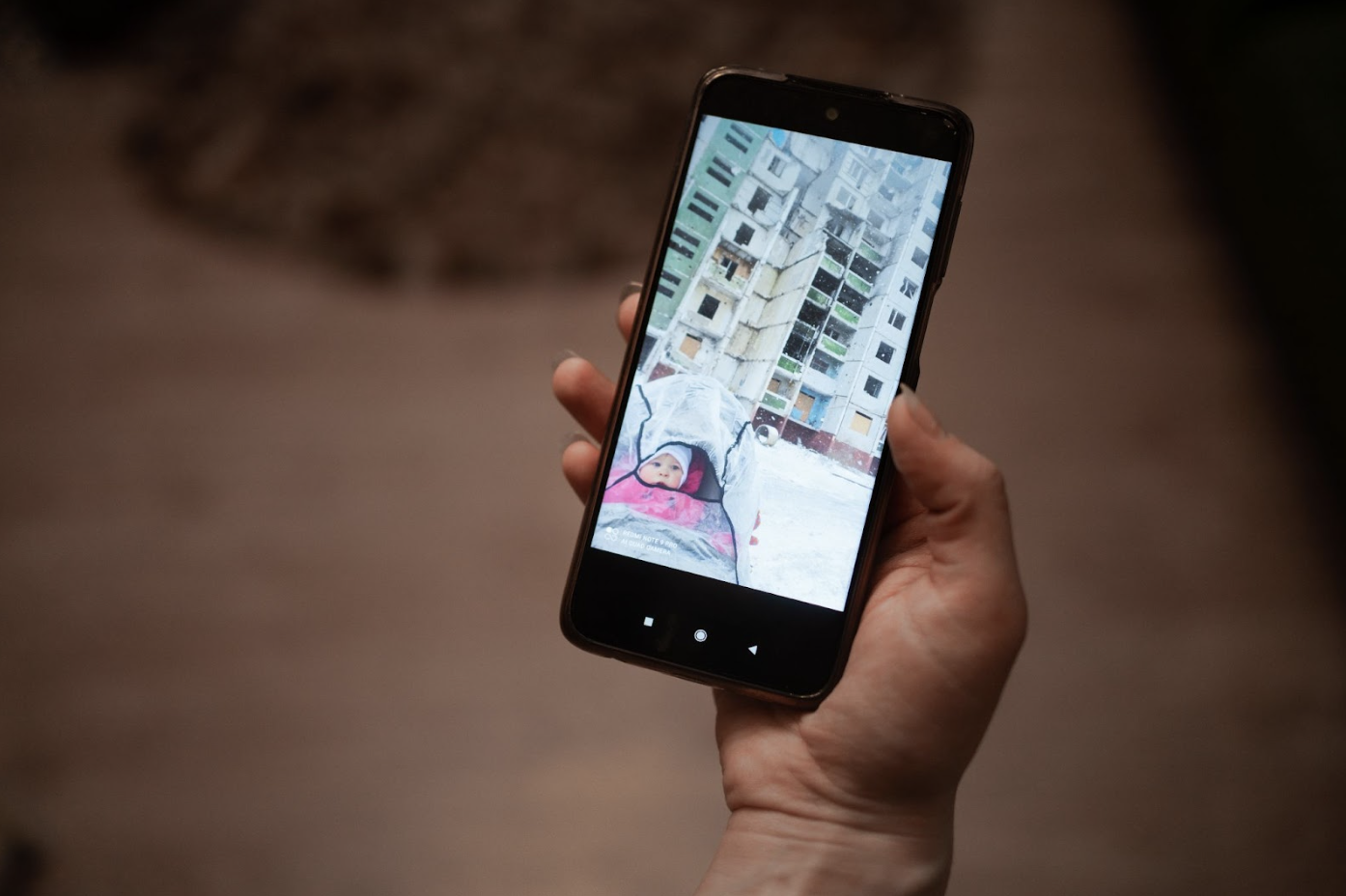
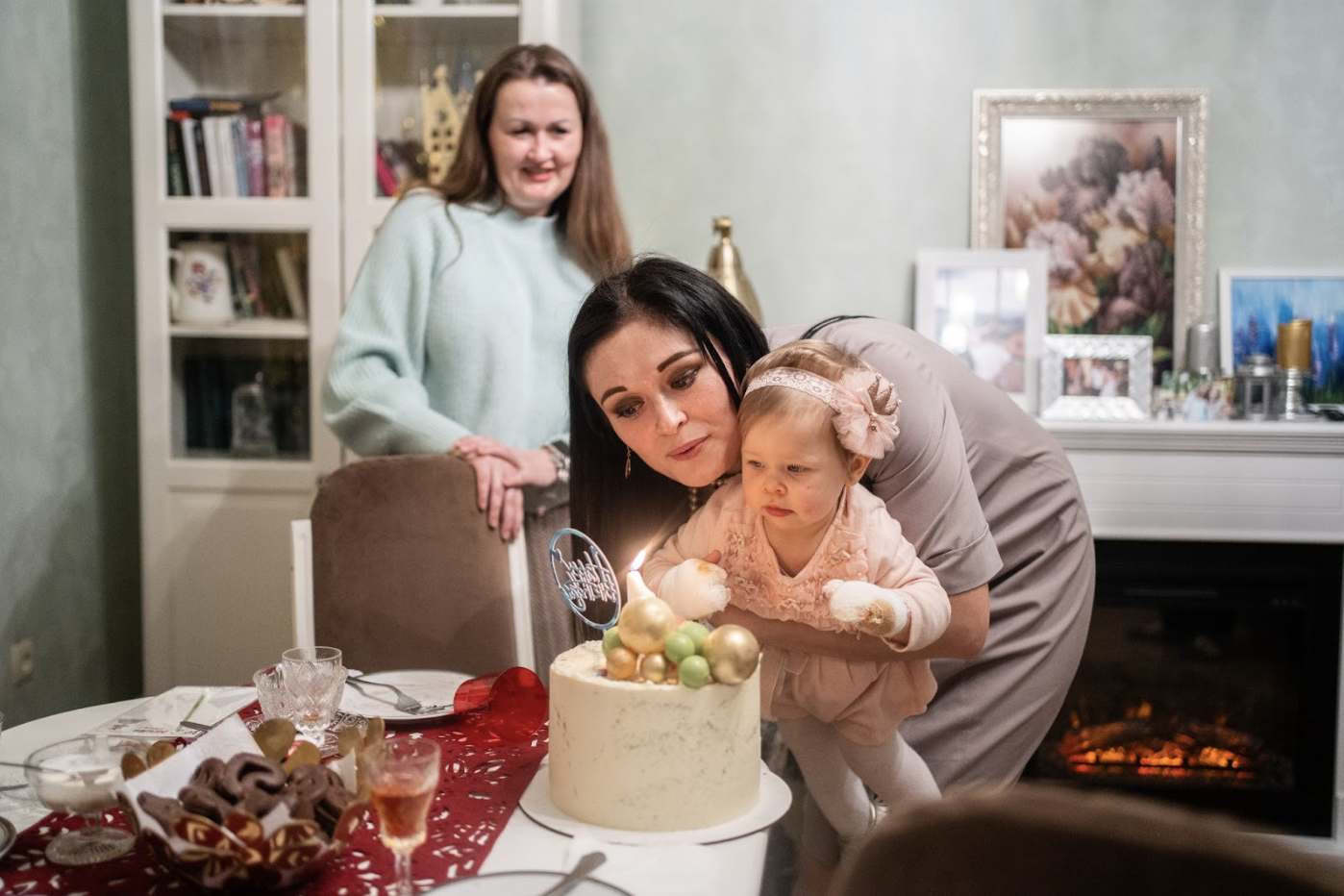
Iryna and Amelia
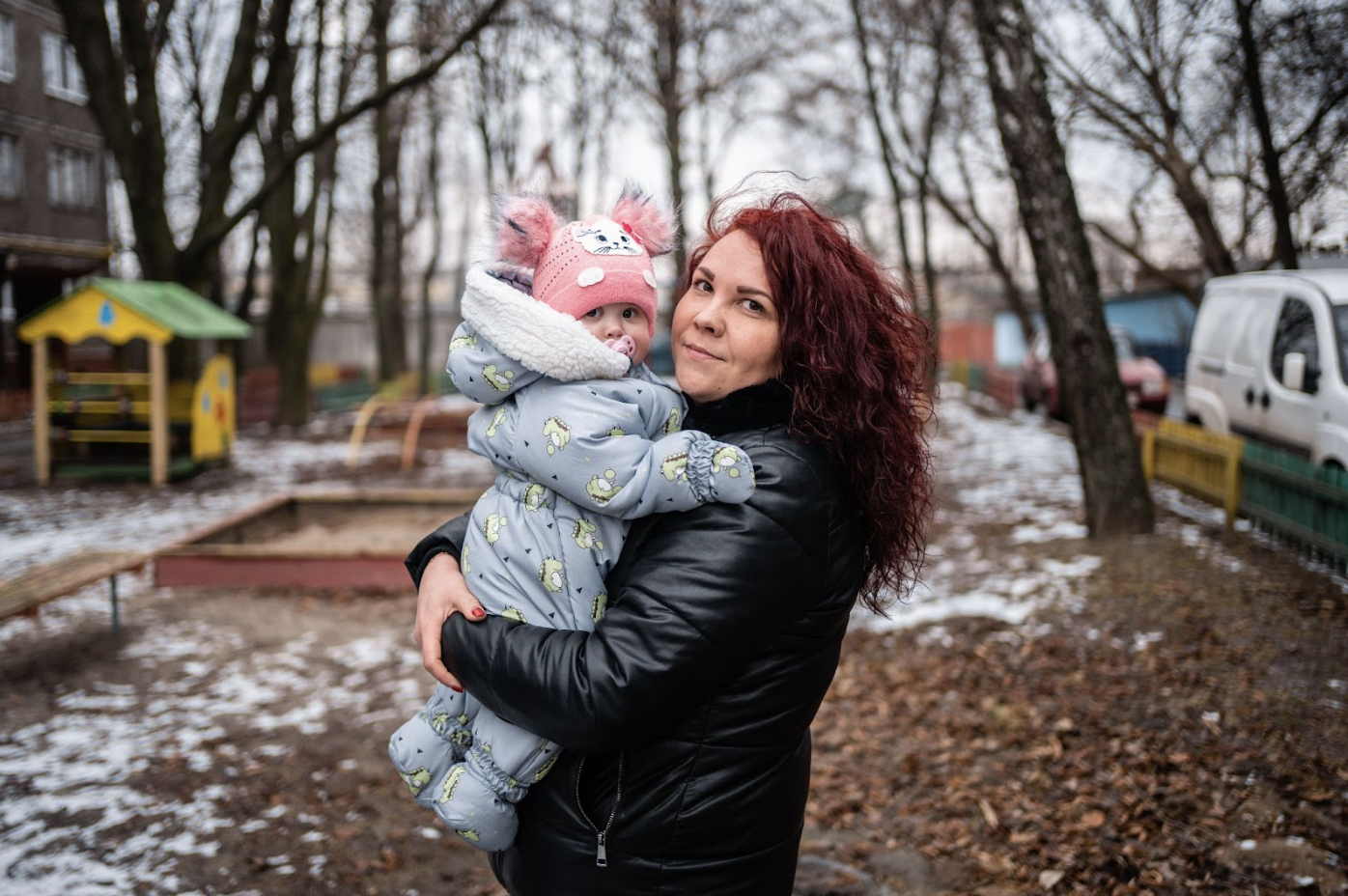
Iryna is a single parent. Her husband died two days before her daughter’s birth. “From the first days of the war, he went to defend our city,” she says. “I asked him not to go because I had to give birth, but he said, ‘Who but me?’ On 3 March, he came under fire and was wounded, and two days later he passed away.”
Iryna was in a bomb shelter when she heard the tragic news.
She gave birth in a cramped room – which she describes as a “small cupboard” – at the hospital on 7 March. Electricity and communications had been wiped out in the city, and the tiny room had been converted into an operating theatre, with a generator and other essential equipment. There, she gave birth by Cesarean section to Amelia.
“For the first week of her life, Amelia did not breathe,” she says, describing how her baby was transferred to the intensive care unit. “I was ready to give everything for her to survive. I understood that her father would not be brought back, but I hoped that everything would be okay with my daughter.”
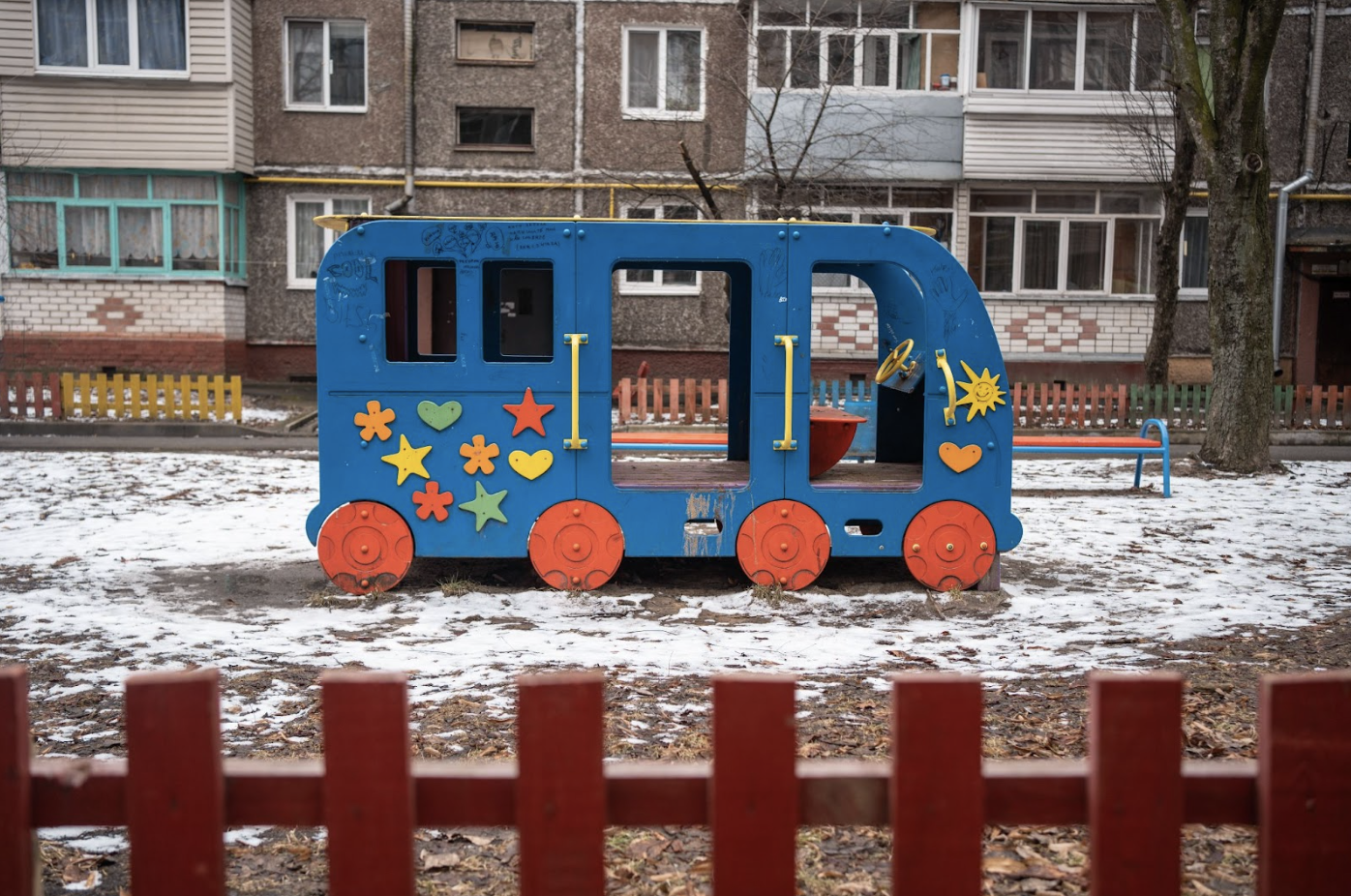
A week after she was born, Amelia began to breathe on her own. Iryna’s relief was immense. “When we were discharged, we immediately left the city,” she recalls. “Volunteers took us to the Khmelnytskyi region.” Iryna stayed there with her newborn for a month, but she was keen to get back. “The morgue workers had agreed not to bury Amelia’s dad until we returned, but we didn't have much time,” she says. As soon as Russian troops were pushed back from the city, she returned.
“Amelia was my salvation. If it weren't for her, I don't know how I would have survived everything. Only she gave me the strength to live on.”
Kateryna and Sophia
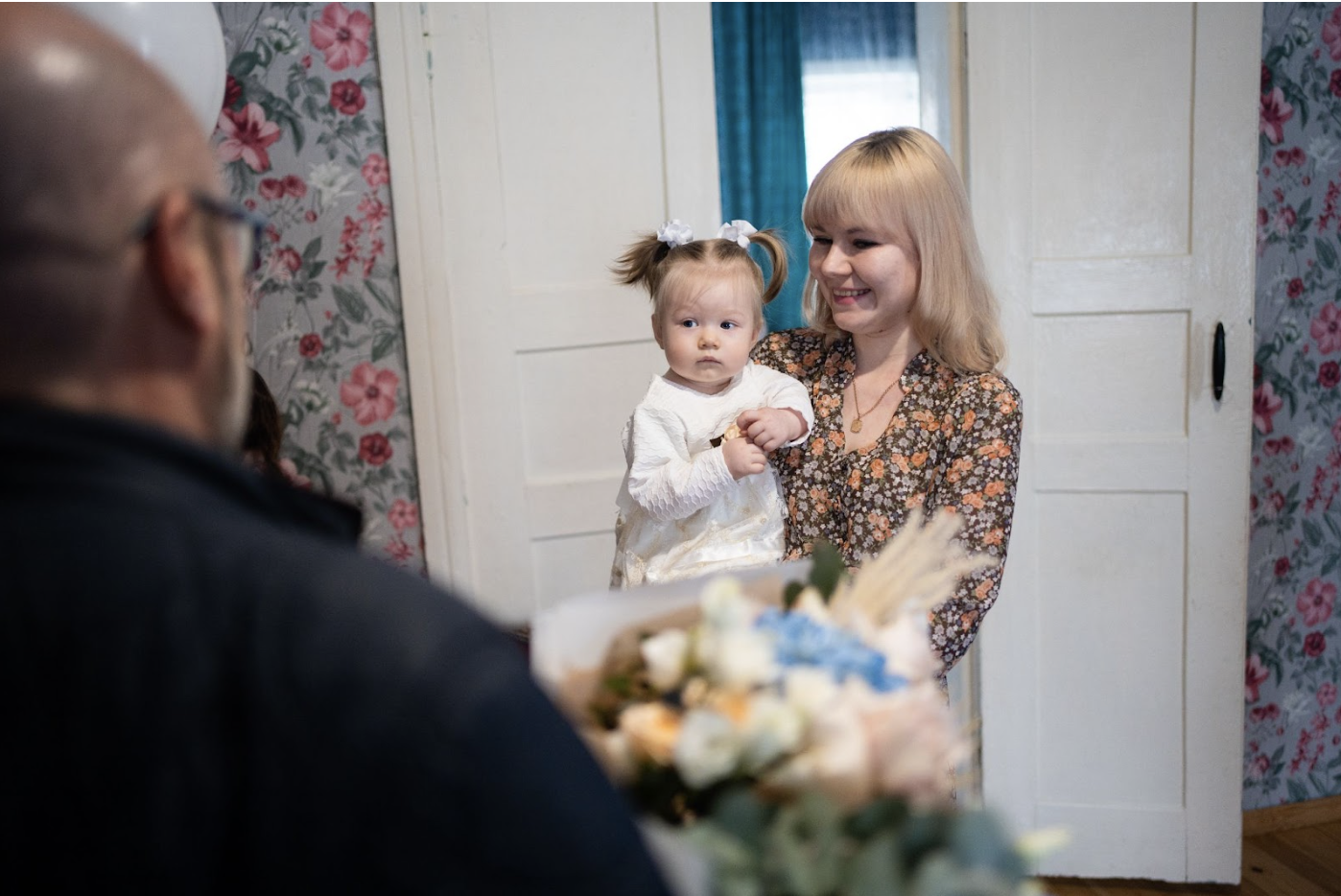
Kateryna’s contractions started while she was sheltering in a cellar. With her city under attack, she managed to find a route to the hospital, arriving by 5 p.m. She gave birth to Sofia in the hospital’s dark, busy corridor, before midnight on 7 March.
“When Sofia arrived, we were taken to the hospital bunker for safety,” Kateryna recalls. “We spent the first hours of her life underground.”
When Kateryna was discharged the next morning, she went to her sister’s home in Chernihiv, where the shelling continued. “We hid in the basement and stayed there for three days. It was cold; there was no light, no water,” she says. “I had to find food for the baby somewhere because I had no milk.”
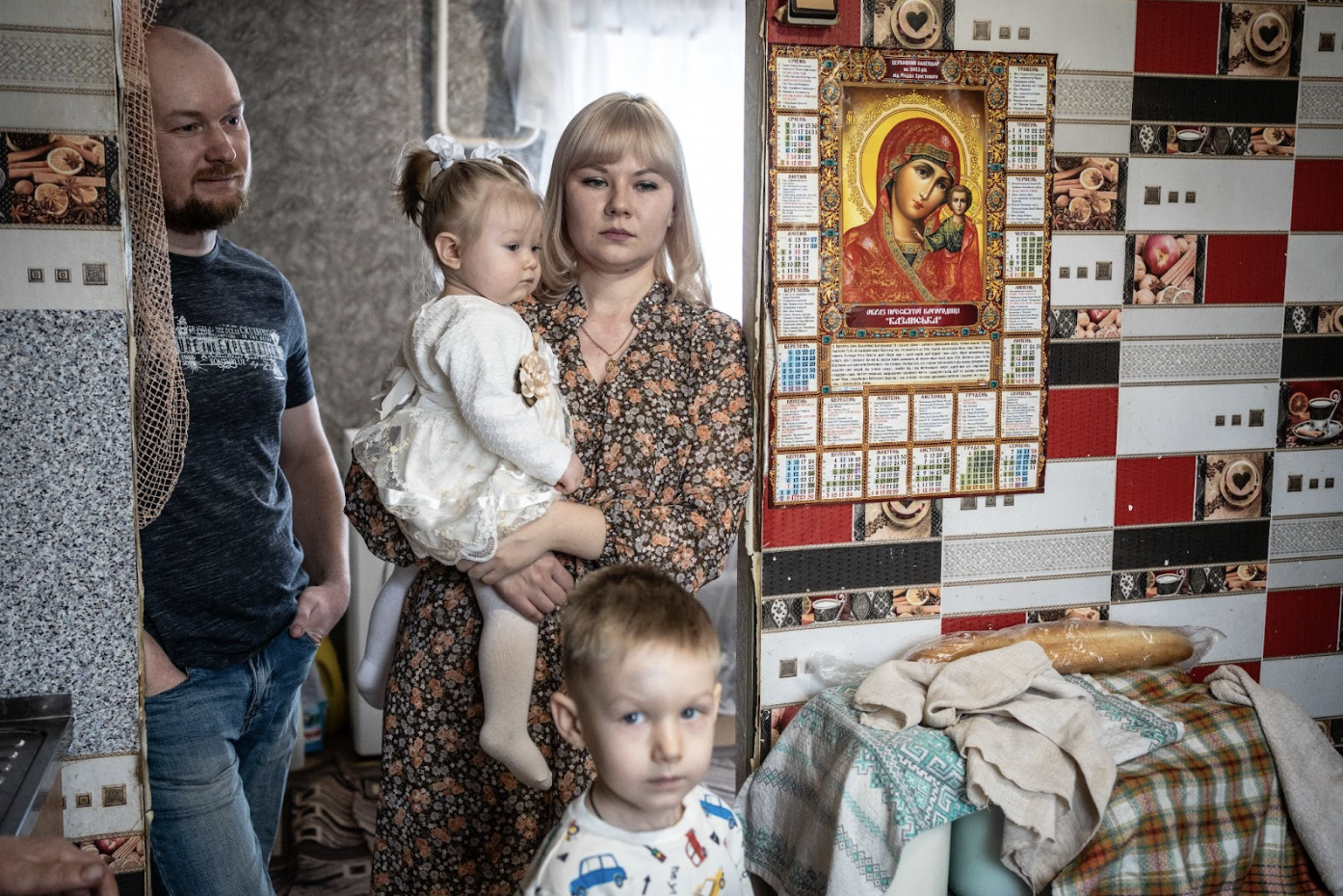
Her husband and 4-year-old son, Mykhailo, were with grandparents in their occupied village of Ivanivka, just 20 minutes drive away. She was anxious and distressed being away from her son, but she couldn’t reach him.
My sister and I went to Lviv, during the month we stayed there, I cried every day. When our village was liberated, my son Mykhailo was brought to us,” says an emotional Kateryna. “My children and loved ones are the only joy that gave me strength to survive this year.”
Maryna and Diana
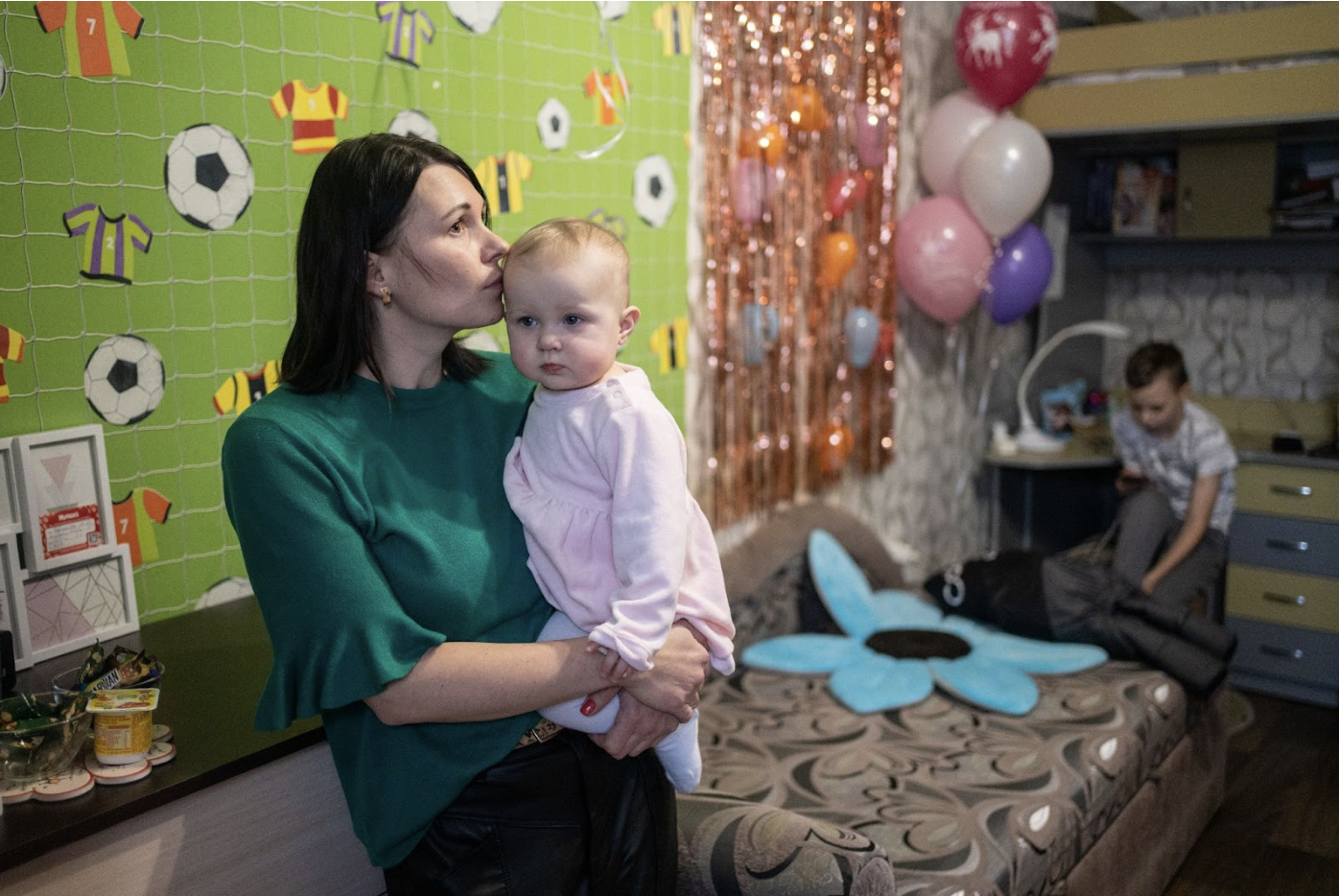
Maryna gave birth in the hospital’s corridor on the same night as Nina and Kateryna.
She describes how, in the weeks leading up to Diana’s birth, she was preparing for the baby’s arrival while also “waking up to the realization that war had begun.”
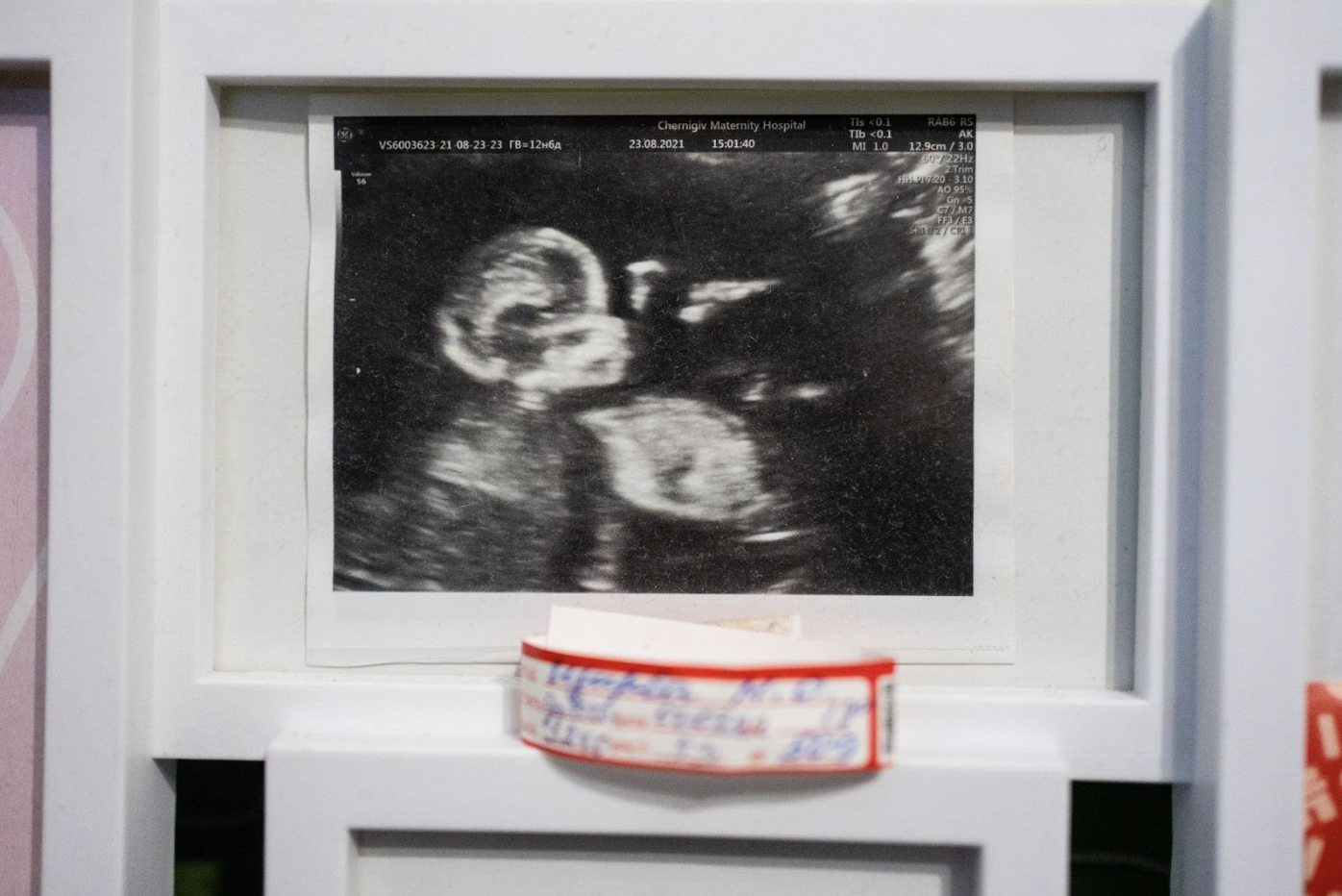
She arrived at the maternity hospital during the day on 7 March, keen to avoid travelling at night amid city curfews. “My greatest fear was the possibility of a bomb dropping on us,” she says. “Thankfully, the experience went smoothly.”
Despite the stress of giving birth amid the bombing, Maryna is grateful that all went well.
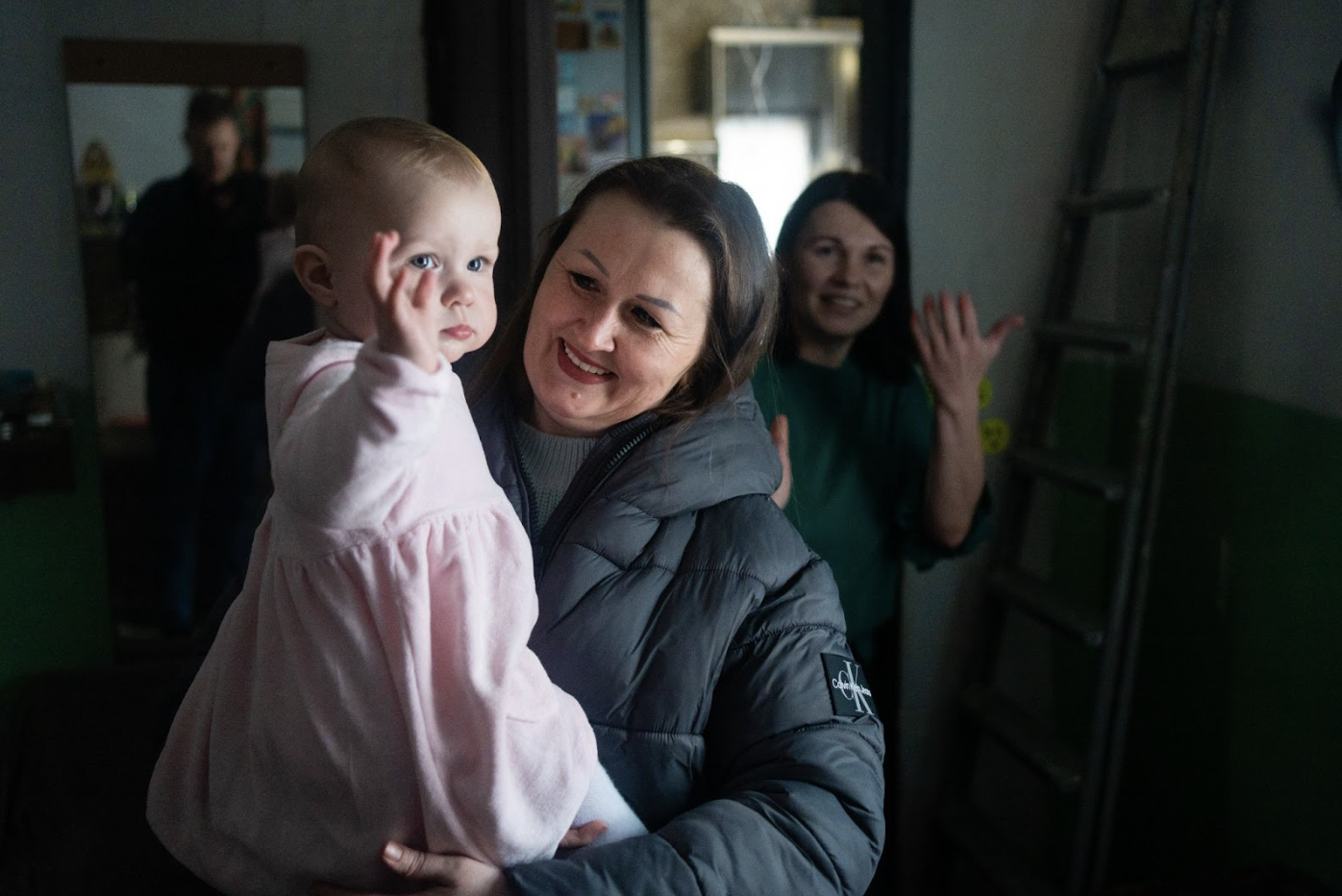
For the next two weeks, the family stayed in the basement with their newborn. “Although there was light from power generators, it was cold,” Maryna says. “We were among the lucky ones with some semblance of comfort.”
“We decided to leave Chernihiv because it was too dangerous to stay with a newborn. We went to Borzna in the Chernihiv region, where my husband's father lived,” she says. “One particular incident that stands out was when the footbridge we used to leave the city was blown up a day after we crossed it. If we had delayed our departure by just one day, we wouldn't have been able to leave.”
Her family is thrilled and relieved to welcome baby Diana. “Our first child, my son, had been eagerly waiting for his little sister. He helps us a lot and is excited to have a sibling. Our baby is the first girl in our big family, and we are grateful to be alive and healthy.”
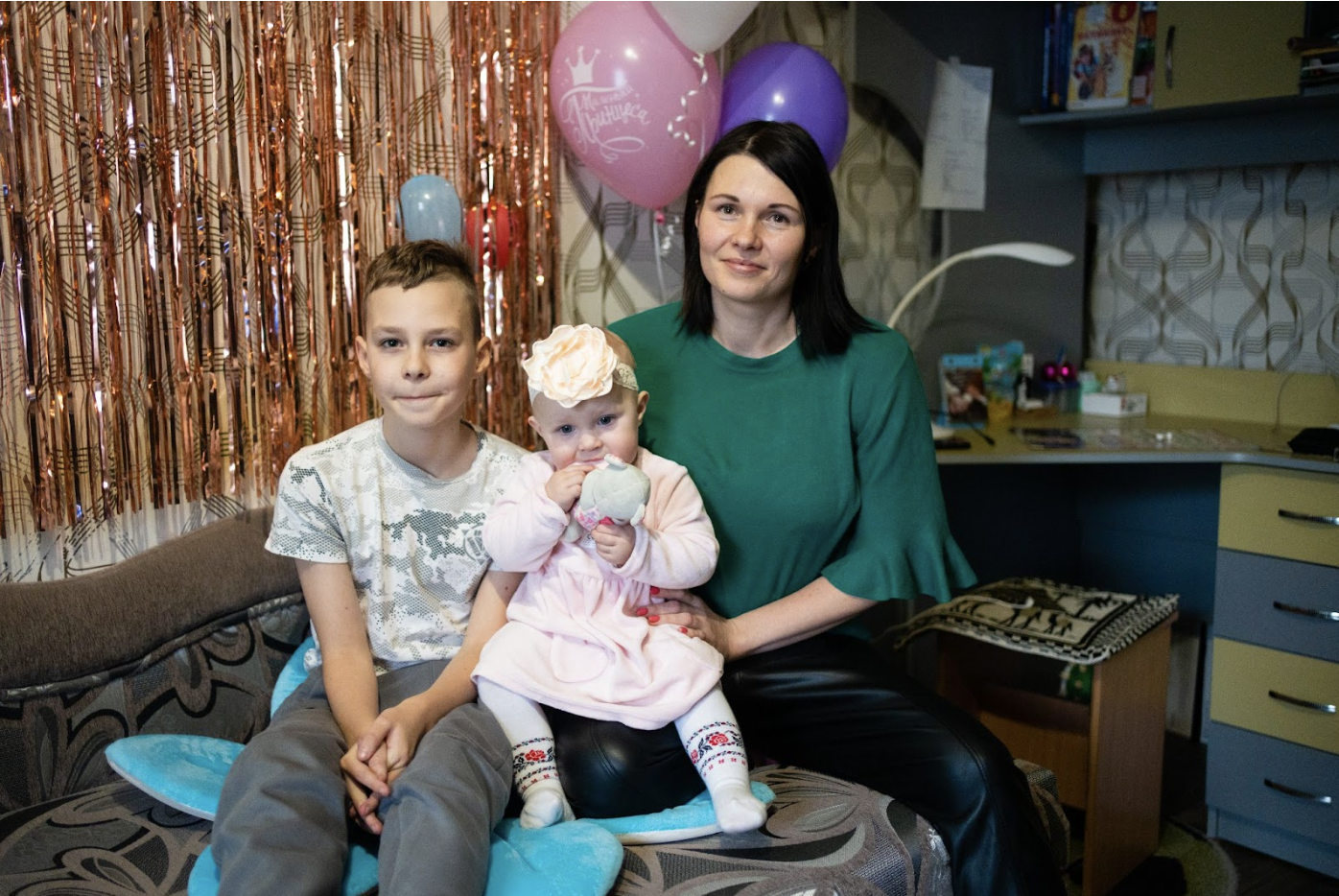
Obstetrician Olena Mokhonko
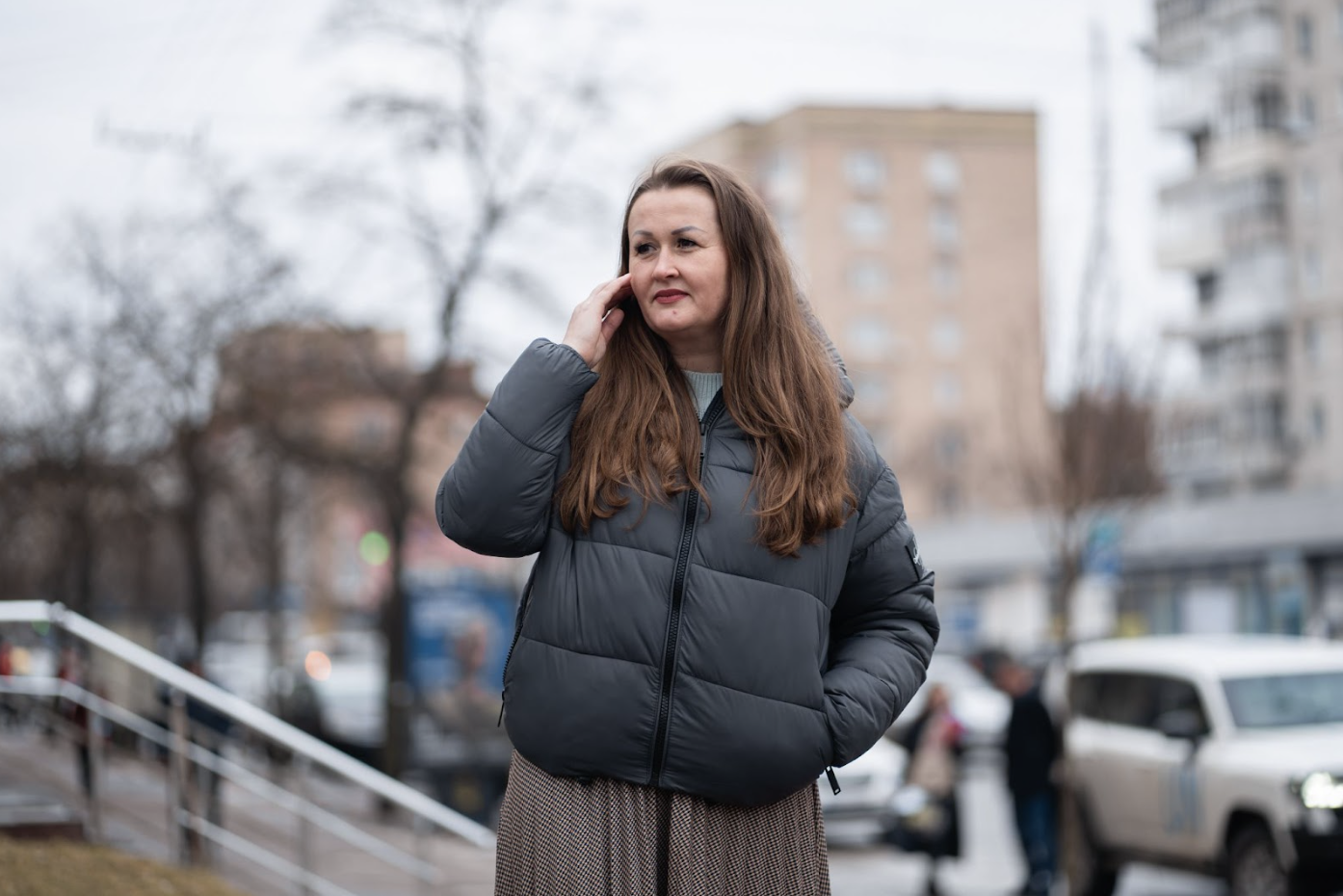
Olena Mokhonko has lived and worked in Chernihiv throughout the war. “I had to go to work because I am a doctor who took an oath to help others. In my work, what I love the most is seeing a father cry and witnessing the joy of parents as they welcome their child into the world,” she says. "When our city was occupied, my work changed dramatically. I had to perform deliveries and surgeries under extreme conditions. We moved all the necessary equipment to the bomb shelter and the first floor of our building.”
She describes how the relentless bombing affected life at home with her husband as well. “There was a time when we were so tired of the constant shelling that we no longer went to a bomb shelter. I still remember the sound of planes at night – my husband and I would hold hands, hear an explosion a few seconds later, and be grateful that the missile hadn't hit our house.”
“As an obstetrician, I'm inspired by the strength and resilience of the Ukrainian women giving birth amidst the devastation caused by war. They are true heroines,” Olena says. “With the help of the international community and the determination of the Ukrainian people, I believe we can overcome these challenges and create a better future for our children.”


